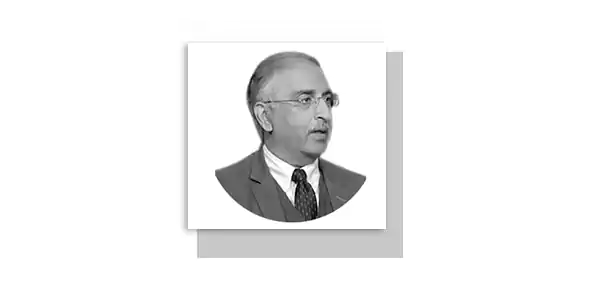May 2023, a mere eleven months in the past, must not be forgotten. That is the month when the price of wheat flour, a staple in every Pakistani household, went up by an unprecedented year-over-year increase of 99%. In May 2023, we were in the midst of an economic inferno. Eggs and rice followed suit, rising by a gut-wrenching 90% and 85% respectively. Family budgets were as bad as they could get. May 2023 saw us standing amidst the ashes of a shattered economy.
In May 2023, fuel prices surged by a staggering 64%, gas charges by 63%, and electricity bills by 59%. Now they all look like mere numbers. Back then they were all horror stories of extreme hardships etched into daily Pakistani lives. In May 2023, we were in the midst of an economic inferno. Imagine the depth of the economic despair: reserves with the State Bank of Pakistan (SBP), the central bank of 240 million Pakistanis, had dwindled to a mere $3.6 billion. Imagine there are roughly around 2,000 individual billionaires globally. In May 2023, a single political misstep could have sent us all plummeting into the abyss.
May 2023 was a month of relentless blows. May 2023 left us bruised and reeling, resilience stretched to its limits. We were tested like never before in our seven-decade history.
Fast forward to May 2024. Here is the latest fact: The latest Sensitive Price Index (SPI) dipped by a welcome 0.79%. Essential commodities like wheat flour (down 8.97%), bananas (down 8.67%), cooking oil, and pulses also saw price reductions. The State Bank of Pakistan’s foreign exchange reserves also climbed to a healthier $8 billion.
Five things I can now say with conviction: We are still coughing and choking. But we have clambered out of the inferno. Flames are behind us. The nightmare is behind us. The searing heat is fading.
Now the three most critical questions of all times to come: Have we emerged from this fiery trial with the wisdom to prevent its flames from engulfing us anew? Have we emerged from this inferno any wiser? Have we learned from our mistakes?
Question: What really did we do between May 2023 and May 2024? Answer: Minimisation of politics. We cast aside the shackles of political maneuvering. We prioritized economics over politics.
There’s a fascinating story woven through the histories of Italy and Pakistan. Between 1960 and 2022, Italy’s political instability saw 36 prime ministers come and go. But Italy’s per capita income went up from $804 in 1960 to $36,000, an increase of 45 times. Between 1960 and 2022, Pakistan’s political instability saw 16 prime ministers come and go. But Pakistan’s per capita income went up from $83 to $1,500; an increase of 18 times. Lesson 1: Italy firewalled economic decisions from political meddlingItaly. Lesson 2: Italy did not allow political instability to derail its economic growth path.
South Korea, Singapore, Malaysia, Taiwan, Vietnam, Indonesia, Rwanda, Bangladesh, Ethiopia, Kenya, Tanzania, Botswana, and Namibia are all practitioners of ‘minimization of politics’ over economic decision-making. From the mighty rise of South Korea to the hopeful strides of Rwanda, there is a chorus of success stories across the globe. South Korea, Singapore, Malaysia, Taiwan, Vietnam, Indonesia, Rwanda, Bangladesh, Ethiopia, Kenya, Tanzania, Botswana, and Namibia all share a powerful secret: the minimization of politics in crucial economic decisions.
We must finally recognize the futility of our current zero-sum political game. Our current political model is all about political advantage not about progress or solutions. We must break free from this purely political dance that has left us all singed and weary.
The most important question of our lifetimes is soon going to roar back into focus: Will we succumb to the flames once more, or will the current ‘minimisation of politics’ forge a path towards a more stable future? Red alert: the inferno can return with even greater ferocity.









